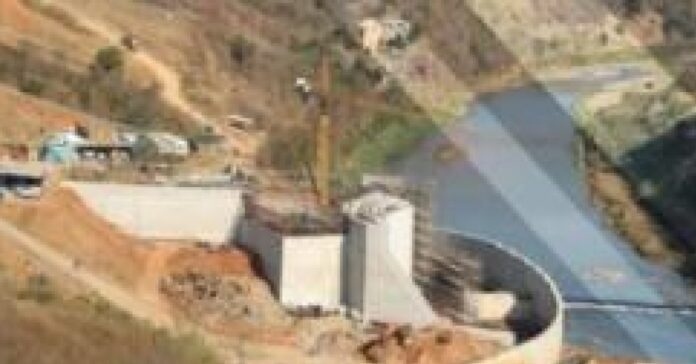Water and Sanitation Deputy Minister David Mahlobo has reaffirmed government’s commitment to tackling the growing challenge of water infrastructure sabotage and criminal activities of the so-called “water mafia”, who continue to violate citizens’ constitutional right to water access.
Speaking during a webinar hosted by the South African Human Rights Commission (SAHRC), Mahlobo described the destruction, vandalism and extortion within the water sector as acts of “economic sabotage that preys on the most vulnerable and obstructs the country’s developmental goals”.
He highlighted how criminal syndicates, often in collusion with unscrupulous individuals, are deliberately disrupting water supply networks, including damaging pump stations, pipelines, and valves. They then profit by selling water through tankers at inflated prices.
“These activities not only cripple infrastructure but also endanger public health, inflate municipal budgets through recurring repair costs and degrade the dignity of affected communities,” Mahlobo said.
The webinar held this week under the theme: ‘Sabotage of Essential Water Infrastructure and Water Mafias: What Can Be Done?’, focused on initiatives underway to address the sabotage of essential water infrastructure and water mafias.
Mahlobo noted that the widespread and coordinated criminal operations have led to water outages due to the theft of critical components like pipes, cables and meters.
He warned that the problem is not only limited to urban centres but is emerging across the country and requires urgent, coordinated and forceful action.
He said department would intensify its collaboration with law enforcement agencies and all levels of government to ensure that those behind the sabotage are identified and prosecuted.
“We will not tolerate the deliberate sabotage of our water infrastructure. These criminal acts are an attack on our constitutional democracy and our commitment to human rights.
“There will be no hesitation in acting against those responsible. We are closing the space for criminals to operate, and we will pursue them relentlessly through law enforcement, community mobilisation and with the full weight of State institutions,” the Deputy Minister warned.
Mahlobo underscored the importance of community participation in protecting infrastructure. He urged citizens to report suspicious activities, support educational campaigns, and embrace a culture of whistleblowing to expose criminal networks and corruption within the water sector.
He also called for a culture of whistleblowing, encouraging individuals with knowledge of criminal networks or corruption in the sector to come forward, adding that their role is vital in rooting out entrenched criminality.
The Deputy Minister outlined the department’s comprehensive response, including the implementation of the 2025 National Water and Sanitation Indaba resolutions, which prioritise infrastructure protection strategies, public education campaigns and partnerships with law enforcement.
“Communities are also being urged to embrace innovation, as municipalities begin deploying technology such as surveillance systems, remote sensors and smart infrastructure to detect and prevent sabotage.”
Mahlobo called on all South Africans, particularly civil society, organised labour, water activists, conservation groups and traditional leaders, to unite against the sabotage of national infrastructure.
“All acts of theft, vandalism or extortion should be reported without delay to local law enforcement or municipal security authorities,” he said.
Mahlobo reaffirmed government’s stance that water access is a non-negotiable human right and “must never be held hostage by criminals”.
“Water is life, and no criminal syndicate will be allowed to hijack the public’s right to it. We are acting decisively, and we urge every South African to be part of the solution.
“We must defend this resource together. Through strong partnerships, community vigilance and courageous whistleblowing, we will protect our water and secure our future,” he said. – SAnews.gov.za















